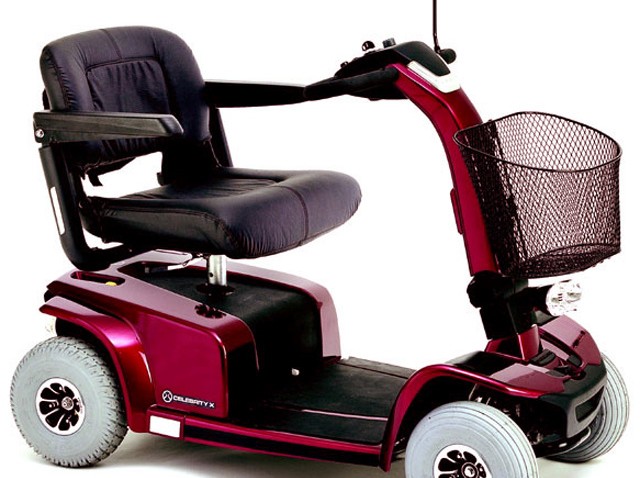There are over 300,000 mobility scooters in the UK – more than quadrupling the number on our streets and in our supermarkets over the last seven years alone. But with the price of a new one typically ranging between £1,000 and £2,000, not everyone who would really benefit from one can afford a “new set of mobility wheels” – confining many people to their homes.
However, there is now a booming market in second hand models, if you know where to look and what to ask for. Specialist website www.myageingparent.com has just published a handy ‘dos and don’ts’ guide to help families get the best and safest deal for their older relatives, based on Mike Salisbury’s Kindle book, ‘A guide to buying and using a used mobility scooter’.
“The market for new mobility scooters has boomed in recent years,” says the website’s MD Deborah Stone, “and now we are seeing a rapidly burgeoning second hand market too – often conducted through eBay and Gumtree.
“In fact you can pick up a standard model for as little as £200 or even less, and a top of the range model with very little usage for just £400 – £700. That’s fantastic value and could really make a huge improvement to someone’s quality of life – enabling them to get out of their home, socialise and do their own shopping.
“The low prices do, however, highlight the fact that if you buy a new mobility scooter, depreciation is pretty significant – immediately 40% or more. Buying a second hand one eliminates that risk and means you might even all of get your money back if you decide to sell it on at a later date.”
However, not everyone wants to be seen using a mobility scooter, while others will be nervous about using one (especially if they have never driven a car). Some can go at a quick running pace of 8mph, so a degree of caution (and ideally some training) is needed before someone takes to the road.
“Most mobility scooter users aren’t insured, so the person would be personally liable if they cause an accident,” says Deborah, “so it’s in every family’s interests to play a part in getting their loved one used to handling one before they even think about a purchase.”
And that, says Deborah, can be relatively straightforward.
“The best way to encourage a relative is to get them to talk to people who have already got a scooter – they are usually enthusiastic and will give advice about buying one. Driving one in a supermarket, where they are often available for hire, is a good way to try one out for the first time under some supervision and get a feel for the controls.”
Equally, they can be rented from the local Shopmobility outlets that you find in many shopping centres and High Streets – for about £1 per hour or £30 for a week. Going for an outing with the family in a country park and keeping up with everybody is a very positive first experience too, and most public spaces now have plenty of mobility friendly tracks.
Scooters are surprisingly easy to use. But, as with buying a car, it is sensible to try out a few different types to decide what is going to be suitable for your needs. Some can be easily packed in the back of a car, while others will need specialist transport to take them any distance.
The myageingparent.com guide takes families through all the different options of makes, models, sizes and speeds – highlighting the plus points and potential downsides.
“There is a huge variety of choice out there,” says Deborah, “making it really important to do your research before you take the plunge. Getting the wrong model won’t just be a waste of money… it could actually be dangerous for the user, making it critical that the person ‘tries before they buys’.
“The online guide gives them the information that they and their family need to bag a bargain and set them off on the road to freedom.”
Read the complete guide HERE





